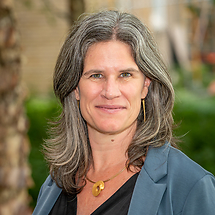October 16, 2019 | News | Suessmilch Lecture
His and her earnings following parenthood in the US, Germany and UK

© Tempura/iStockphoto.com
On October 22nd, 2019, Kelly Musick from Cornell University, gave a lecture on couples’ earnings following first child birth in the US, the UK and Germany and resulting gender equality.
Abstract:
This paper examines how parenthood plays into gender equality within couples over the life course, and how country context in turn shapes couple dynamics and inequality across households.
We use long-running harmonized panel data from the Cross National Equivalent File (N=4,117 couples and 28,490 couple-years) and a fixed-effect approach to examine couples’ earnings trajectories following first birth in the 1990s and 2000s in the United States, Germany, and the United Kingdom. Variation in these policy and normative contexts should play into couple earnings dynamics following birth, and should do so differentially by mother’s education.
We find steep declines in wives’ share of couple earnings following first birth in the U.S., U.K., and Germany that persist over 8 years of follow-up. Declines are smallest in the U.S., due largely to the longer work hours of U.S. mothers. Declines are also smaller among wives without a college degree in the U.S., where mothers are less buffered by public work-family support, but also have fewer options to manage work and family on one income.
Our results highlight the importance of better understanding work hour differences across countries and how they play into gender inequality and broader notions of well-being.
About the speaker
Kelly Musick is Professor and Department Chair of Policy Analysis and Management, Director of the Cornell Population Center, and Professor of Sociology (by courtesy). She received her M.P.A. in economics and public policy from Princeton University in 1996 and her Ph.D. in sociology from the University of Wisconsin-Madison in 2000. She was on the sociology faculty at the University of Southern California before moving to Cornell in 2008. Her research focuses on family change and social inequality.

© David Burbank
She has published on women's childbearing intentions, the quality and stability of cohabiting relationships, social class differences in family formation, well-being in parenting, and the mechanisms linking family environments and child well-being. Current projects expand on these themes to address issues at the intersection of parenting, work, and well-being from a cross-national perspective.
Musick's research has been funded by the Eunice Kennedy Shriver National Institute of Child Health and Human Development, the Russell Sage Foundation, and the Swedish Research Council. She is editorial board member of the American Sociological Review, founding member of the Work and Family Researchers Network, and an International Collaborator of Stockholm University's Linnaeus Center for Social Policy and Family Dynamics in Europe.
Time and Venue
Tuesday, October 22, 2019, 3 p.m. at the Institute's Auditorium